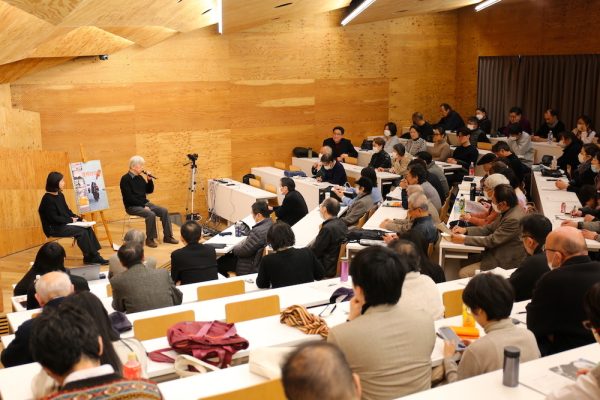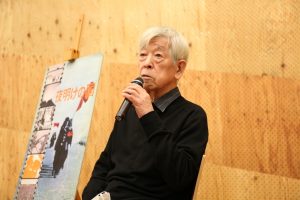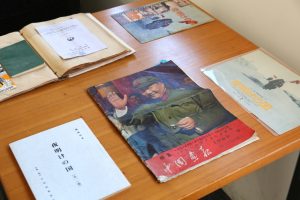
April 18, 2024
レポート:第15回研究上映会「映画『夜明けの国』-時枝俊江監督の希望と挫折」Report: Documentary Film Archive Project 15th Research Screening “The Land of Dawn” - Director Toshie Tokieda's Hopes and Setbacks.
2024年3月9日、東京大学本郷キャンパスで、記録映画アーカイブ・プロジェクトの第15回研究上映会「映画『夜明けの国』-時枝俊江監督の希望と挫折」が開催されました。
本作は日本を代表する女性監督の一人、時枝俊江が文化大革命の最中に当時の中国を取材した長編記録映画です。この映画は35mmフィルムで撮影されましたが、今回の上映では、4Kスキャンでデジタル化することによって、色鮮やかな映像が蘇りました。
上映後のトークでは、撮影に同行した助監督の坂口康さんを迎えて、岩波映画製作所が『夜明けの国』を制作した経緯、文革に対する撮影チームの考え、時枝俊江監督の中国に対する思いなど、貴重なお話を伺いました。
また、トーク後の質疑応答では、参加者から「文革に対して異なる世代がどういう考え方を持っていたのか」「映画の中でなぜあのような音楽が使われたのか」といった質問があり、坂口さんの年齢を感じさせない率直で軽妙な受け答えに会場が湧きました。
今回の上映会には、学生、研究者、業界関係者など、20代から80代まで幅広い年齢層の約100名の参加者が集まりました。
「中国との国交回復前の制作であると考えると、貴重な作品である」「限定されたものとはいえ若い国の希望が明確にとらえられている」「文化大革命の記録はさまざまな形で残っているが、当時の農村や工場などや労働者の姿を詳細に追跡していてとても重要なフイルム」など、数多くの感想が寄せられました。
記事:朱子奇(博士課程)
On 9 March 2024, the 15th research screening of the Documentary Film Archive Project entitled “Film The Land of Dawn – Director Toshie Tokieda’s Hopes and Setbacks” was held at the Hongo Campus of the University of Tokyo.
The film is a feature-length documentary by one of Japan’s leading female directors, Toshie Tokieda, who covered China during the Cultural Revolution. It was shot on 35mm film, but for this screening the colorful images had been brought back to life by digitizing them with a 4K scan.
After the screening, assistant director Yasushi Sakaguchi, who accompanied the film crew, gave a valuable talk on how Iwanami Film Productions came to make The Land of Dawn, what the crew thought about the Cultural Revolution, and the director’s views on China.
During the Q&A session after the talk, participants asked questions such as “How did different generations view the Cultural Revolution?” and “Why was this kind of music used in the film?” Mr. Sakaguchi’s frank and witty answers, which belied his age, captured the audience’s attention.
The screening attracted about 100 participants, ranging in age from 20 to 80, including students, researchers and industry professionals.
The film received many comments, including “It is a valuable film considering it was made before diplomatic relations with China were re-established;” “However limited, it clearly captures the hopes of the young country;” and “Although the Cultural Revolution has been documented in various ways, this film is very important because it traces in detail the rural areas, factories and workers of the time.”
Text:ZHU ZIQI(Doctoral student)
English proofreading: David Buist (Project Senior Specialist)
主担当教員Associated Faculty Members
教授
丹羽 美之
- 社会情報学コース
- 文化・人間情報学コース
Professor
NIWA, Yoshiyuki
- Socio-information and communication studies course
- Cultural and human information studies course




